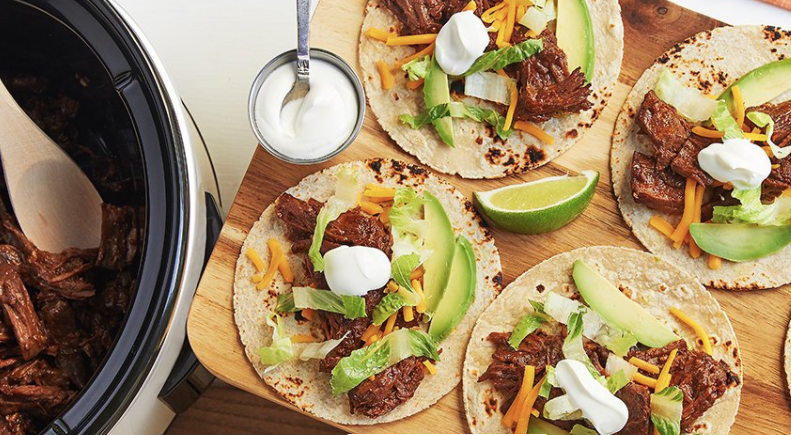

WHISK
Shoppable recipes have become a center of action in the digital kitchen market — and there’s no one doing more in this space than Whisk. The London-based startup’s impressive publisher lineup includes Allrecipes and the BBC, and on the delivery side they’re working with both Amazon Fresh and Walmart. In the appliance realm, the company’s software powers food shopping for both Samsung and – through their just-announced acquisition of Avocando – one of Europe’s largest appliance makers in BSH Appliances. With traction in grocery, appliance and food media industries, the company is well-positioned as it looks to make its AI-powered recipe recommendation engine into a fully connected kitchen platform.

ANALYTICAL FLAVOR SYSTEMS
Analytical Flavor Systems’ (AFS) AI-driven Gastrograph platform helps packaged food companies achieve greater success in a saturated food industry that has an over 80% failure rate. Gastograph moves CPG brands’ development process beyond traditional tasting panels; it surveys each product with a flavor profile engine that is predictive, anticipating how new foods will perform in different markets, over a long time horizon, and against various demographic archetypes. Food companies are struggling to launch new products in an era of rapidly shifting consumer tastes, and an AI-driven platform like Gastrograph gives big food a more accurate map with which to navigate into the future.
 CHEF’D
CHEF’D
Chef’d has always been a different kind of meal kit business. While companies like Blue Apron invested millions in building their own brand, Chef’d created a white-label meal kit business model to power big brands like Nestle and Campbell’s. The company also quickly focused on customization, building a factory that’s able to pack a wider variety of meal kits than other providers. The company was one of the first to pursue the retail channel and now is in almost a thousand physical locations, including Costco and a variety of regional grocery chains. Most recently, the company’s Byte partnership made Chef’d meal kits the first to enter the office market, providing an option for busy professionals as they head home from work.

ZUME
People get hung up on Zume’s pizza making robot, which we get, because, you know — robots. But the more interesting story is how the Bay Area startup uses hundreds of data points to predict how much and what types of pizza will be ordered in a given area on a given day. If that weren’t enough, the company actually cooks pizza in a moving van so it’s delivered to your door literally straight out of the oven. With pizza making mastered, Zume is now opening up its platform to help other types of restaurants create the same type of predictive delivery system, and even partnered with Welbilt to build customized mobile cooking vans.

PILOTWORKS
Starting a food business is hard. Maintaining and growing that business is practically impossible if you don’t have money, space, and a certain amount of business savvy on hand. Nick Devane and Mike Dee addressed this problem by starting Pilotworks, which is best described as the AWS of the kitchen: emerging food startups that join have access to shared infrastructure (kitchen space and equipment, a network of contacts, mentorship opportunities) that might be otherwise unattainable for these young brands. Other companies offer aid or space to cottage food businesses, such as Commonwealth Kitchen, but none on the same scale as Pilotworks; it now operates in six U.S. cities, and is still growing. For businesses that need help to clear some of the major hurdles of working in the food industry (or, for that matter, just need kitchen space), it’s a great option.
Do you agree with our selections? Is there an exciting new startup or food innovation veteran you think should be on the list? Tweet us @TheSpoonTech and use #FoodTech25 to share your thoughts!


Leave a Reply